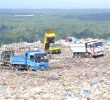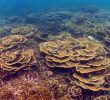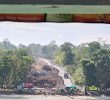CAGAYAN DE ORO CITY, Philippines – Following the pronouncement of an environment official on why the Philippines has yet to ratify an international treaty that prohibits imported garbage from entering the country, environmental group EcoWaste Coalition has called on the government anew to strictly impose a ban on waste importation “without further delay.”
EcoWaste Coalition’s appeal to the Duterte administration came after Juan Miguel Cuna, Department of Environment and Natural Resources (DENR) undersecretary for undersecretary for policy, planning and international affairs, said in an interview that the government is still studying the effects of ratifying the Basel Ban Amendment to entities engaged in recycling of waste materials.
Cuna was here to represent DENR secretary Roy Cimatu during the 3rd Philippine Environment Summit held Feb. 26 to 28.
Cuna said the Philippine government, through the Senate, could not just right away ratify the Basel Ban Amendment, a part of the treaty that would disallow shipment of hazardous wastes from developed to developing countries, because of its impact on the people that depend on garbage recycling for their livelihood.
EcoWaste Coalition and other environmental advocate groups have been calling on the country’s leadership to ratify the amendment and ban waste importation for good.
“While our country has ratified the Basel Convention in 1993,we still have not ratified the Basel Ban Amendment that was adopted in 1995 and entered into legal force in December 2019,” said Aileen Lucero, EcoWaste Coalition national coordinator, in a statement Saturday, Feb. 29.
By ratifying the said amendment, which is designed to fix the recycling loophole in the treaty, she said “we protect our territory from becoming a dumping ground for hazardous wastes and other wastes camouflaged as ‘recyclables’ that could no longer enter China and other countries.”
Lucero said the Philippine’s current laws are “not strong enough to shield us from waste traders in search for cheap recycling and disposal options in developing countries like ours.”
“We need a stronger defense against the entry of hazardous wastes and other wastes, including plastic waste, which could be better managed in exporting countries,” she said.
The string of waste controversies that angered the people, she added, “justifies a clear and unequivocal policy warning waste traders and traffickers that it’s no longer ‘garbage business as usual’ in the Philippines.”
Lucero cited the entry of so-called “plastic scraps” from Canada, “plastic synthetic flakes” from South Korea, “assorted electronic accessories” from Hong Kong, and “municipal wastes/processed engineered fuel (PEF)” from Australia, as clear indicators of the need to overhaul the national policy on the importation of foreign waste.
Beyond banning waste imports, we support stricter monitoring of imports to ensure that no waste is brought in under false declarations,” she said.
EcoWaste Coalition has noted that neighboring countries like Indonesia, Malaysia, Thailand, and Vietnam have taken various actions to stop the flow of hazardous wastes and other types of trash in their ports.
“To effectively deter illegal waste trade, we urge the [Association of Southeast Asian Nations] to initiate a regional response fully banning waste imports in the entire economic bloc,” Lucero said.(davaotoday.com)









